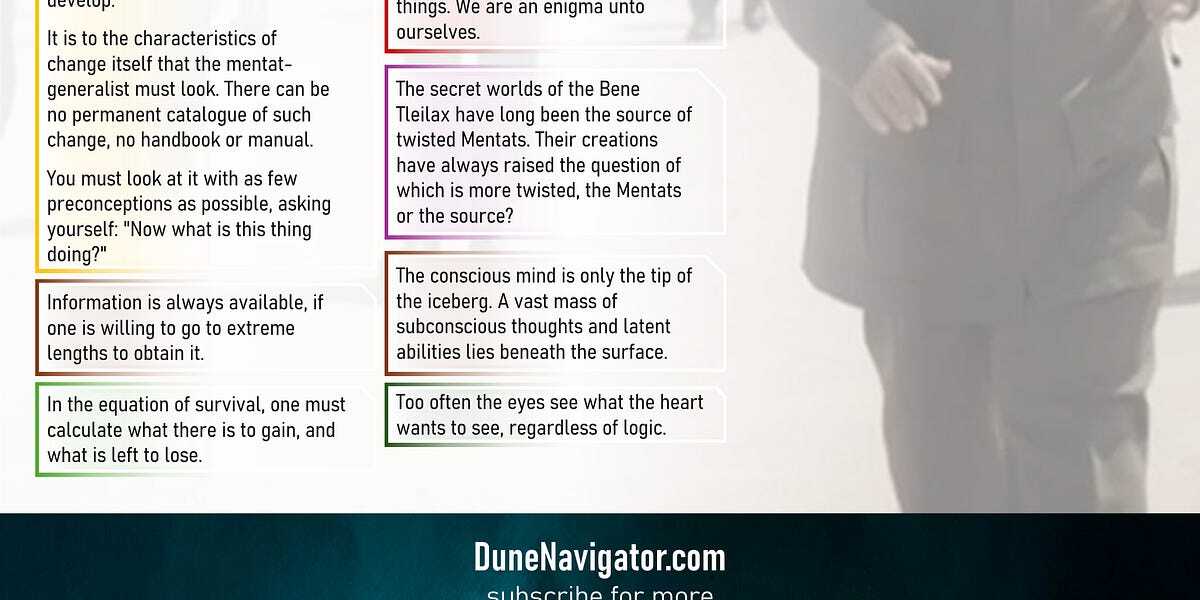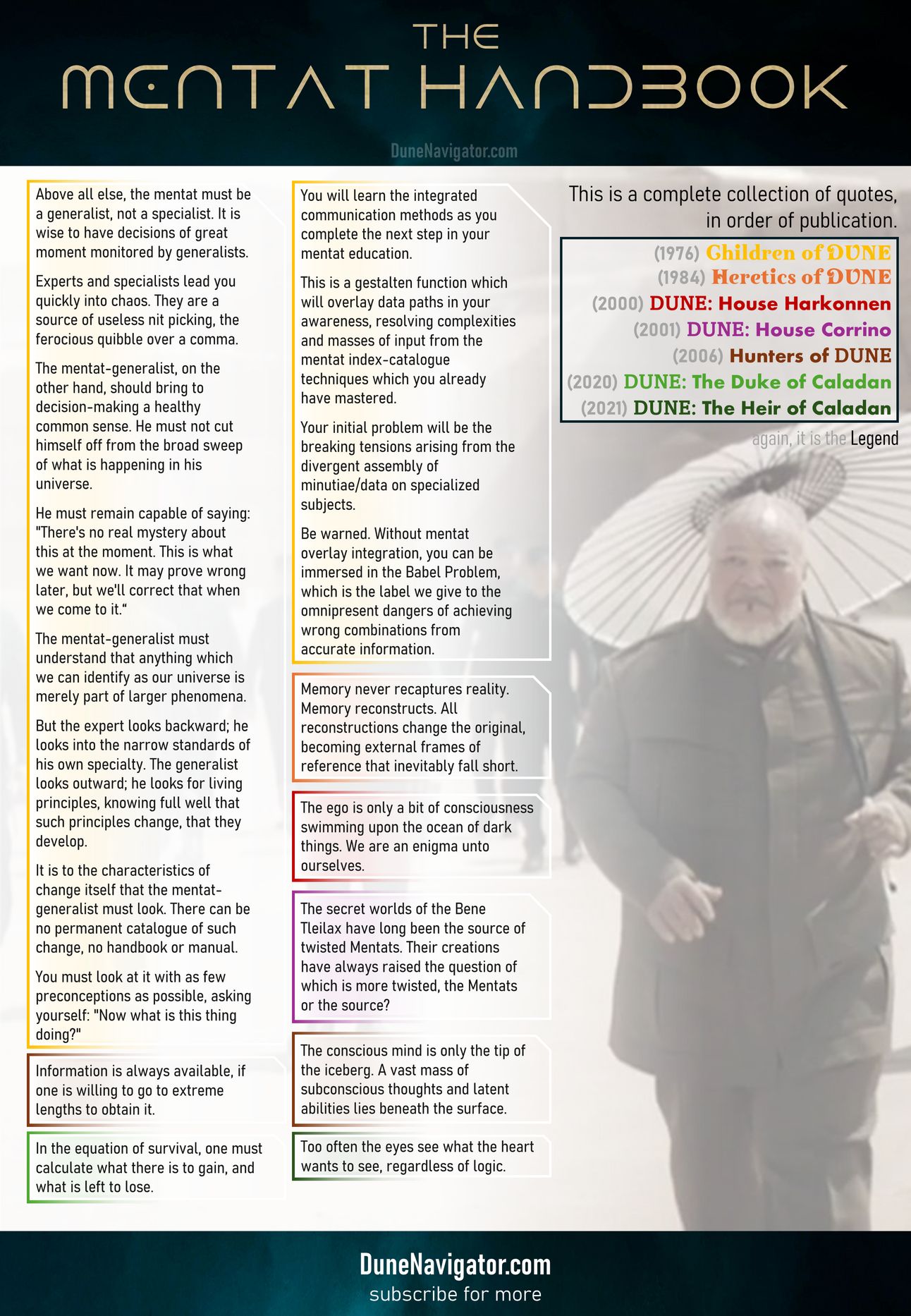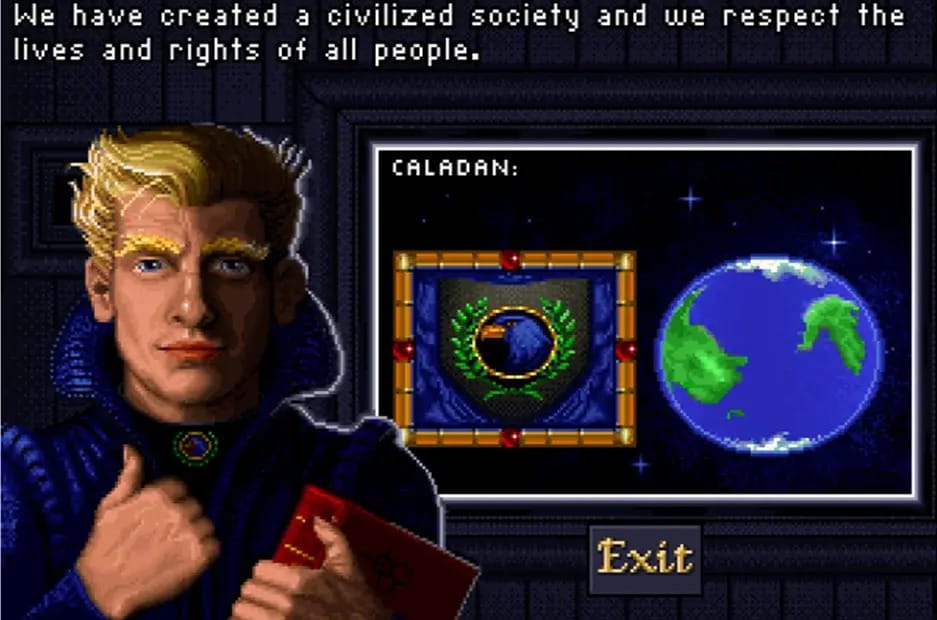
A couple of months ago, we did Mentats | everything from the core canon - this included what they do, how they do it, why they look the way they do, and also their education.
For the training and philosophy bit, the Mentat Handbook was one of the main in-universe documents. It only appears three times in the core canon, but like with all the epigraphs of Dune, I find it irresistibly intriguing because it provides a brief glimpse behind the curtains.
So, like the completionist that I am, I decided to find all the quotes.
To my surprise, the whole of the Expanded Universe only adds a total of six new citations. Here's all of them:

First, it seemed odd that it's an instruction manual that talks a lot about distrusting instruction manuals.
But then I had to realize that these aren't really instructions at all.
They're warnings.
Here's how I'd summarize them.
As a lifelong generalist in my professional life, it obviously fills me with pride and validation that the first commandment (albeit not the first law) is to avoid becoming a specialist.
Above all else, the mentat must be a generalist, not a specialist. Experts and specialists lead you quickly into chaos. […] They are a source of useless nit picking, the ferocious quibble over a comma.
— The Mentat Handbook, Dune [1965]
Or rather, Mentats specialize in not specializing.
Many things we do naturally become difficult only when we try to make them intellectual subjects. It is possible to know so much about a subject that you become totally ignorant.
— Mentat Text Two (dicto), Chapterhouse: Dune [1985]
The generalist's job isn't knowing a little about everything - it's having a framework to confidently handle a lot of information.

Speaking about confidence: the second commandment is to doubt yourself.
Memory, feelings, and one's ego - a Mentat must be conscious of their own humanity and how that can influence their assessments and logical thinking.
While not attributed to the Handbook per se, Herbert includes a warning against instinctive conclusions - 26 years before Nobel Prize-winner Daniel Kahneman's "Thinking, Fast and Slow" is published.
Ready comprehension is often a knee-jerk response and the most dangerous form of understanding. It blinks an opaque screen over your ability to learn. […] Be warned. Understand nothing. All comprehension is temporary.
— Mentat Fixe (adacto), Chapterhouse: Dune [1985]
Intellectual humility and slowing down your thinking.
Uproot your questions from their ground and the dangling roots will be seen. More questions!
— Mentat Zensufi, Chapterhouse: Dune [1985]
With the previous two commandments in mind, it's no surprise that the third one underlines how intelligence is not about having all the answers.
Education is no substitute for intelligence. That elusive quality is defined only in part by puzzle-solving ability.
— Mentat Text One (decto), Chapterhouse: Dune [1985]
And that requires Mentats to be shameless when it comes to questions, and adaptable when it comes to answers.
It may prove wrong later, but we'll correct that when we come to it.
— The Mentat Handbook, Dune [1965]

Again, as a lifelong generalist, I'm probably biased, but to me, all three seem like great (career) advice - even if you're not planning on becoming a Mentat.